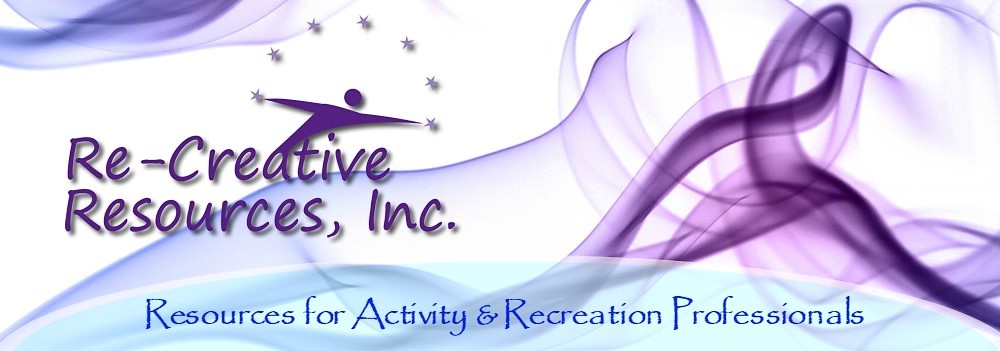Poetry Writing
As a group project
it is possible to create a poem by using the client’s ideas. In the first step
ask your clients what is associated with the appropriate holiday that you will
be discussing. Here is a list of possible holidays:
1. Father’s
Day
2. Memorial
Day
3. Independence
Day
4. Halloween
5. Christmas
The facilitator
starts a line then asks the clients to name a rhyming word. For example if the
line ends in “way”, the facilitator asks the group to name some words that rhyme
with the word “way”. Some words may be day, say, pray or play. Then the
facilitator comes up with a line incorporating their rhyming word as an
appropriate ending to the second line. This is done until the poem is complete.
The facilitator then asks the group to provide the poem with a title. Re-read
the poem so that the clients hear it. The poem can be edited if need
be.
Note: It is all
right if the poem does not make sense because this is their project. The
original intention of this project is for mental stimulation, creativity, and
reminiscing but most of all to have fun!
Our Story
Families and friends
enjoy knowing about the lives of their grandparents, friends, great uncles, and
great aunts. Through creative writing techniques it is possible to record their
client’s biographical history and combine it with scrap booking techniques.
This can be done in a group setting with a facilitator.
The facilitator
asks the appropriate question related to the topic at hand. For example if the
topic is Independence Day, the facilitator asks the following
questions:
1. Who did you
celebrate Independence Day with?
2. What did you
do?
3. Did you see
the fireworks?
4. Where did
you see the fireworks?
The facilitator
may also ask those who are low functioning or have a diagnosis of Alzheimer’s
disease the same questions. However, remember to keep it simple and use open
ended questions. For example:
1. Do you like
Independence Day?
2. Did you go
with family?
3. Did you go
to the beach?
4. Did you go
to the park?
5. Did you go
to a barbecue?
6. Did you have
fun?
Whatever the
resident says, record it then write it up. Type it on stationary that reflects
the holiday. Any office supply store has the appropriate stationary. Again
give the piece a title and the client the byline.
This is a great way
to pass on the memories to the family members. This is a tangible connection to
the client. In fact as the facilitator you can combine the stories to create a
portfolio. In essence it will be a biography of the client which will be an
eternal keepsake for family members.







